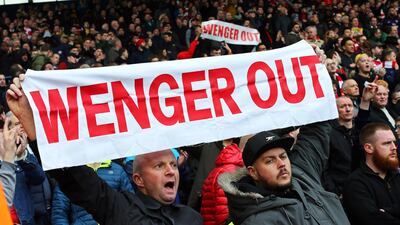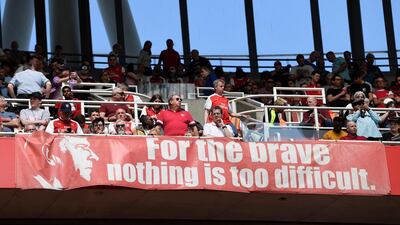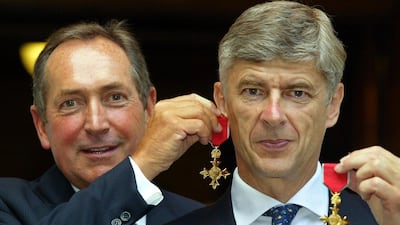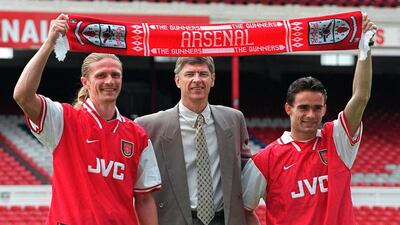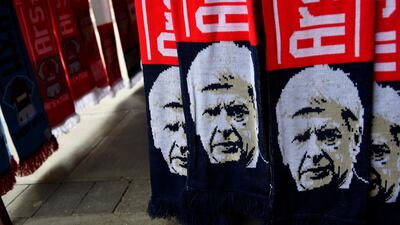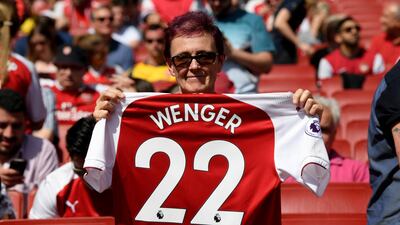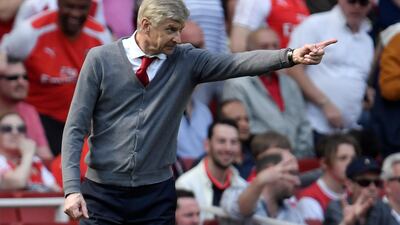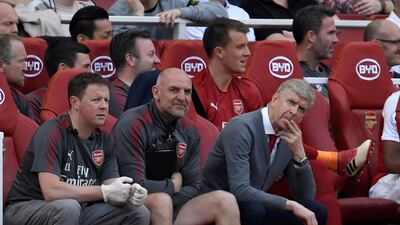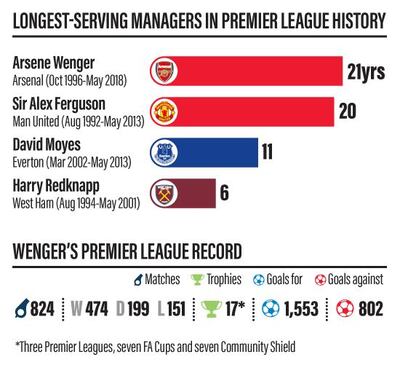On face value, Arsene Wenger and Mick McCarthy do not have much in common, aside from being experienced managers in English football.
Wenger treated football at Arsenal more as an art form, preferring - certainly in the trophy-less years - style over substance. McCarthy, the 59-year-old former Republic of Ireland manager who recently left Championship side Ipswich Town, belongs to the kick-and-rush brigade and has in recent years put pragmatism before adventure. Wenger was all broccoli, science and passing triangles; McCarthy grit and winning second balls.
But events during the past couple of weeks have seen them placed in the same bracket as the longest serving managers in their division, both of whom won't be managing their clubs next season.
The nature of their departures also have similarities, although Wenger is expected to make it through to the end of the season - something McCarthy failed to do.
McCarthy took over at Portman Road in November 2012 and formed a competitive side which reached the play-offs in 2015 despite working on a shoestring budget. Fans became disillusioned, however, with an increasingly dour style of play and relations came to a head during the current campaign with McCarthy branding some supporters "numbskulls". He was also caught swearing in their direction during the local derby against Norwich City.
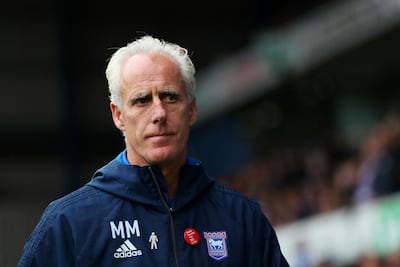
With season ticket sales plummeting and vitriol raining down from some areas of the crowd, McCarthy and owner Marcus Evans decided the plug should be pulled on his tenure at the end of the season. He didn't even get that far. McCarthy labelled the fans "disgraceful" before announcing "I'm out of here," during a press conference on April 11 after a toxic 1-0 victory over Barnsley which left them mid-table but well outside the play-off spots.
The end of Wenger's reign has echoes of this. For years disgruntled segments of the Arsenal fanbase have called for change.
After Arsenal beat West Ham United 4-1 in the Premier League on Sunday, Wenger said that the "hurtful" supporters were damaging the club's image.
“I believe this club is respected all over the world, much more than in England, and our fans did not give the image of unity that I wanted," he said. "That was hurtful because I feel the club is respected over the world and, overall, the image we gave from our club is not what it is – and not what I like."
The two longest serving managers in the top two divisions were both respected for what they achieved in their careers, but both were ultimately unwanted by the core support.
Their departures come amid a wider trend of frequent managerial appointments and sackings, which leads to the question of whether we will see any more long-serving managers at the top end of the English game.
Pep Guardiola spent four seasons at Barcelona, followed by three at Bayern Munich and is now almost two years through his three-year contract at Manchester City. Jose Mourinho is well-known to run on three-year cycles, having hopped between Porto, Chelsea, Inter Milan, Real Madrid, back to Chelsea and then on to Manchester United.
At Tottenham Hotspur, Mauricio Pochettino has been in charge since May 2014 but is yet to win a trophy. Spurs' miserable run of FA Cup semi-final defeats was stretched to eight matches following last Saturday's 2-1 defeat to Manchester United.
Frequently linked with Real Madrid, the Argentine hinted afterwards that he might not be around long enough to see the club win a trophy. "Tottenham need more time with me or with another, but the most important thing is to keep going and keep developing that philosophy that is fantastic for this club," he said.
Elsewhere in London, Chelsea's Antonio Conte is another whose future has been the subject of almost daily speculation over the course of the season.
He admitted at the weekend that Wenger's longevity is unlikely to be experienced again. "In the past you could have a story like Wenger's story or Ferguson's story," he said, referring to Alex Ferguson, who spent 27 years in charge of Manchester United. "Now you must live the present in football, because you don't know what will happen tomorrow - or even today."
It is in the lower echelons of the top flight where the chances are higher of a long stay, mainly because of the more reasonable expectations of the owners and fans.
Eddie Howe of Bournemouth is a prime example of this, and will become the longest-serving active Premier League manager when Wenger steps down. His first spell at the south coast club ran from December 2008 to January 2011 before 22 months were spent at Burnley until he returned in October 2012.
Another "long-termer", Sean Dyche, who took over at Burnley the same month as Howe did at Bournemouth, has helped guide the club to seventh in the Premier League and in the hunt for a Europa League spot.
Dyche and Howe are attractive propositions for clubs with bigger budgets, but realistically the big six teams are unlikely to come calling.
If you believe Conte, managers such as Dyche have it easier, so they are less likely to be sacked.
“It is more simple because you have to avoid the last three places at the bottom and then you can stay between 10 teams. You can play only for this target," Conte said. “Then, if you have a good base and in the previous season played very well, you can count on this. You have to fight only to avoid this."
Then there are the trigger-happy clubs. Carlos Carvalhal is Swansea City's fifth permanent manager in two years, while Watford are on their ninth manager in six years.
Watford's chairman Scott Duxbury said last year that the lifespan of a coach at a mid-table club was two years. "They will either move on to bigger and better things or there will be problems and then you will look to move on and look in a different direction," he said.
It's all a far cry from when Wenger took over at Arsenal in 1996, and McCarthy at Millwall in 1992. Those were times when managers could be forgiven a few months of underachievement, when football wasn't a business which required instant results, and when fan unrest couldn't spread like a disease through social media.
____________
Read more:
Arsene Wenger stepping down so Arsenal can be 'respected' again
Life after Wenger: Who will replace Frenchman at Arsenal?
____________
